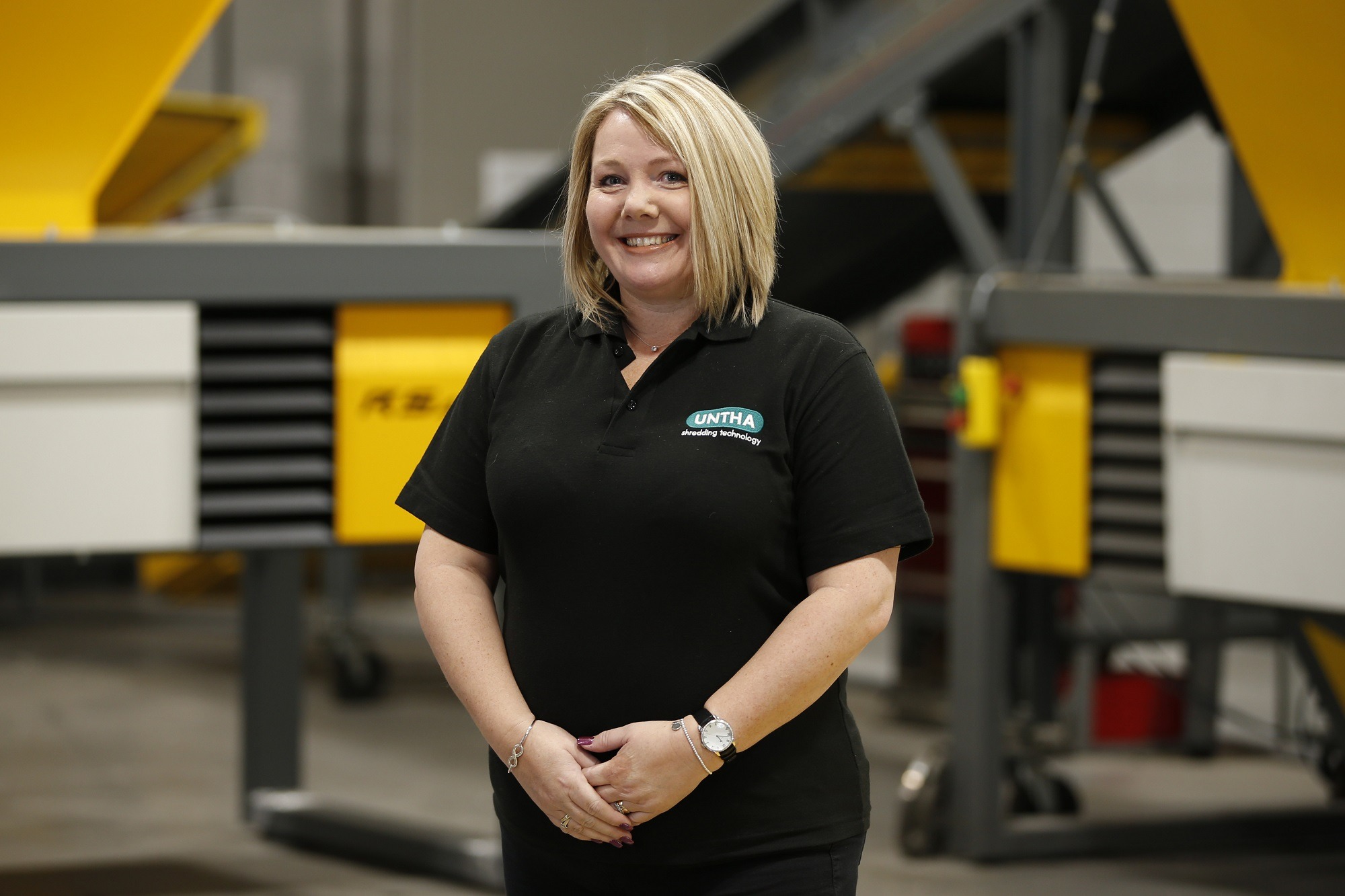As a waste baler provider, the Riverside team liaises with an array of industry experts on a regular basis.
So, in our latest Q&A, we’re introducing some of the ‘faces behind the waste’. Next up, it’s Julie Cassidy, parts
and maintenance sales executive of UNTHA UK. Find out about her role, career history, and what she thinks
about the future of the waste industry…
Tell us a little bit about your company:
UNTHA is a leading provider of industrial shredders that can tackle a range of wastes, from mattresses and
washing machines, to metals and tyres. Throughout its 50-year heritage, it has built a global reputation among
the waste industry for its passion and products.
What’s your role there?
As service co-ordinator, I worked within our busy aftersales department, however, I have recently been promoted
to parts and maintenance sales executive, which involves more customer-facing activity — with regular site visits
and account management — to ensure we constantly meet their needs.
What’s your favourite part of the job?
Being part of a great team here at UNTHA UK. Everyone is respectful and welcoming towards new colleagues,
quickly embracing them into the fold. We also have some lovely, friendly customers, who make the role so much
easier and more enjoyable.
Sum up the UK waste industry in three words:
Necessary, booming, exciting.
How long have you worked at UNTHA UK and what’s your career history?
I’ve been working at UNTHA for three years and five months now, although the majority of my career has been working in sales within the engineering sector — so I think I’ve definitely found my calling!
How would your colleagues describe you in one word?
Friendly, I hope!
What is one of the main challenges being faced by the sector right now?
The economy. So many businesses struggled during the pandemic, with some still battling to return to pre-Covid
measures. In addition, staff shortages mean delays in multiple areas of organisations, and the customer
experience suffers as a result.
Tell us something we may not know about the waste industry…
I think knowledge of the waste industry is growing day by day. However, I believe there’s not enough education
around the importance of recycling. Working at UNTHA has really opened my eyes to the need for us all to be
doing more.
Finish the sentence: The future of waste is…
Reduce, reuse, and recycle — always.






